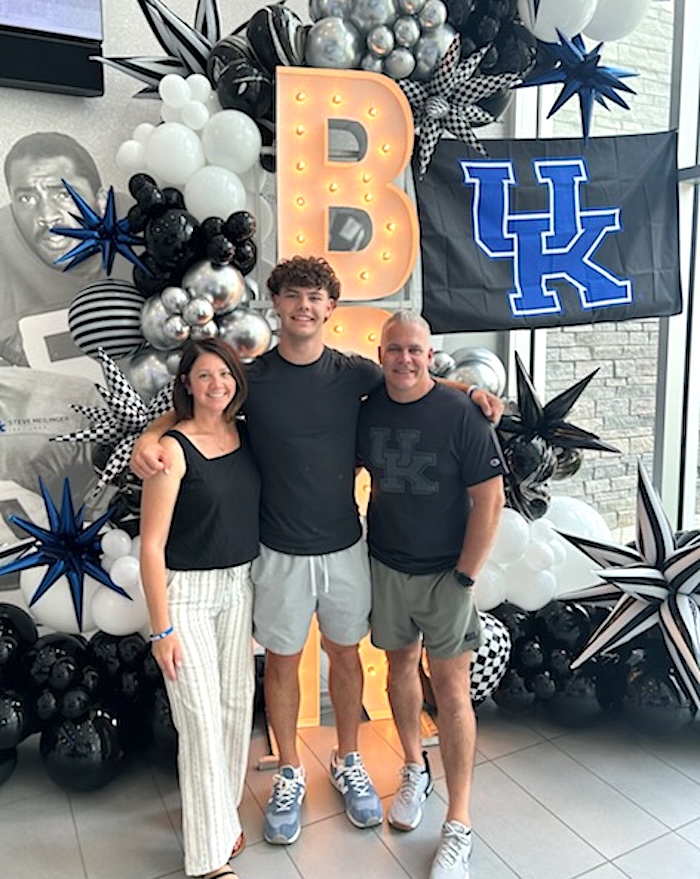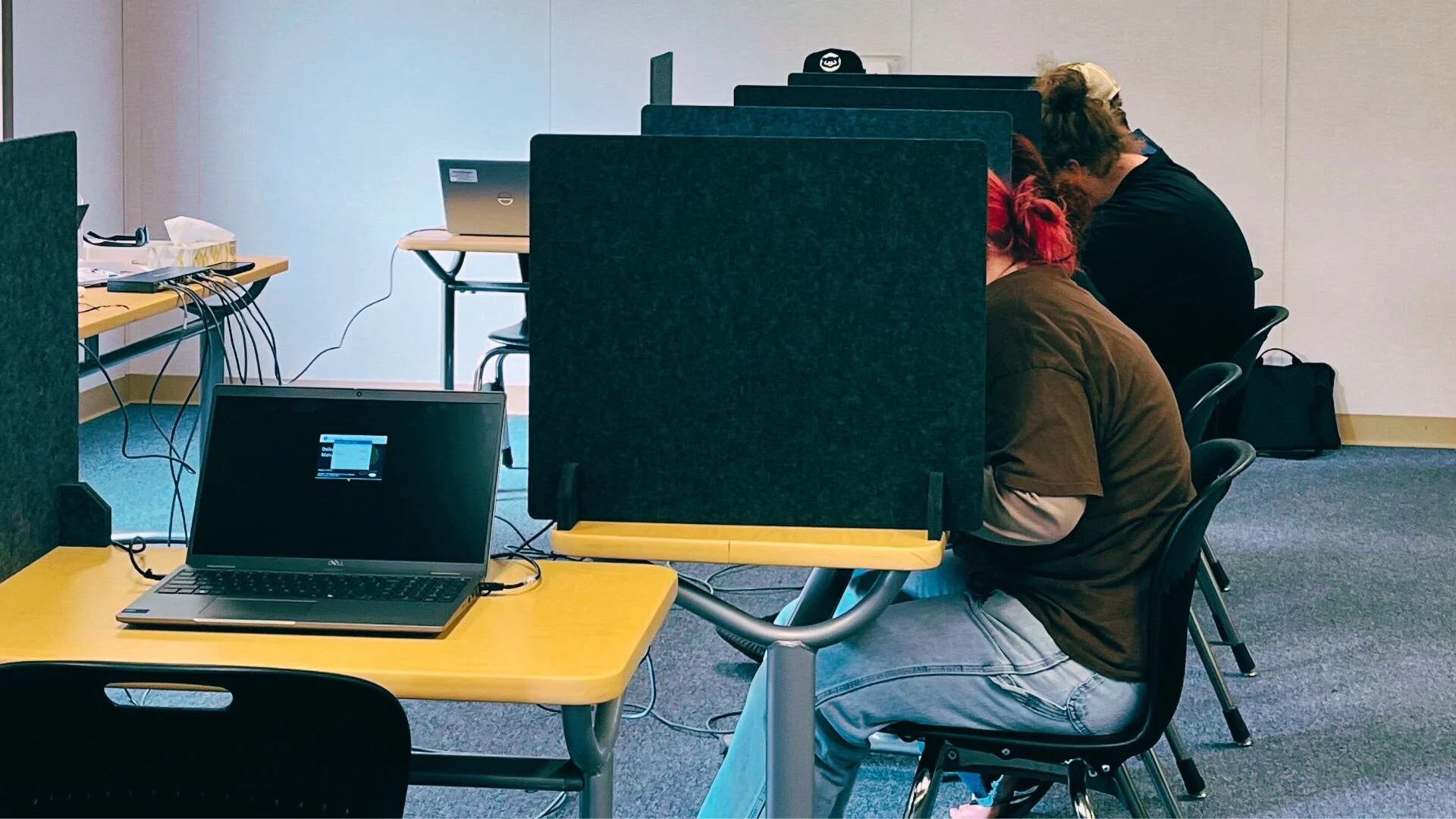The education of Edith Lockage: Part II
Published 1:00 pm Wednesday, July 5, 2023

- Edith Lockage spent her early years attaining an education to fulfill her dream: to become a missionary. (Photo by Carrie Hudson)
|
Getting your Trinity Audio player ready...
|
By Carrie Hudson
Intern Reporter
Today Edith Lockage resides at Wesley Village in Wilmore.
Trending
Decades ago, though, she was a young woman with a dream of teaching and becoming a missionary.
Through hard work, Lockage rose from humble beginnings in Wolfe County and went on to become a teacher on a Navajo reservation.
However, her mother’s illness drew her back Indiana, where she received some of her university education.
Life back in Indiana
Lockage returned to Indiana and lived near her brother. This way, they could visit their mother together. From there, she contacted the superintendent in the area and asked if there were any teaching jobs available.
To her disappointment, there weren’t. However, the superintendent did offer Lockage a job as the curriculum director.
Trending
“He said they needed someone to help the teachers, a curriculum director. But I really didn’t want that job because I didn’t think I knew enough to do that. I would have gotten paid more, but I really wasn’t worried about that,” stated Lockage.
Originally, she turned down the position and began looking for one as a teacher.
During her search, the superintendent called Lockage and said,” ‘The board wants to fire a teacher because they think she is getting too old to be teaching.’ They wanted to go in her classroom to do a write-up on her teaching,” Lockage said.
When she examined the classroom and teacher, she saw someone she looked up to. Lockage accounted.
“She was like a little old grandma and had the prettiest handwriting. I thought, ‘I can’t teach like that.’ She was a real good teacher,” Lockage said.
Through her time in the teacher’s classroom, Lockage discovered why the teacher was being considered for termination.
“She had a little boy, and he was complaining that he didn’t like her and told his mom he wanted her fired. So, the mom went to the board to get her fired,” Lockage said.
In her report to the education board, Lockage wrote what she felt to be right.
“I told the superintendent what I saw and said, ‘I wish I could teach that well. If the board don’t want her, they wouldn’t want me either.’ That is what school is all about; we need good teachers. He gave the board my write-up about her, and they said no more,” Lockage said.
Lockage did take the position of curriculum director because she knew the teachers needed help and stayed until she was ready to leave.
“I wanted to help the teachers and this way I could. I did that until I retired,” Lockage said.
The older teacher in that school district became someone Lockage greatly admired throughout her career. When she passed away, she gave Lockage a chair she now sits in every day and serves as a reminder of her calling to help others.
Retirement
After Lockage retired, she hoped to stay busy and continue to find ways to serve others.
In the process of looking for work, she learned English was one of the most sought languages across the world, and there was a program that used teachers for this cause,
“Other countries wanted to learn English. There was a program that allowed teachers to go overseas for two to three weeks to teach English,” Lockage said.
Given her educational background, Lockage felt she could help with this.
“I’ve taught English, and they wanted to learn it, so I figured I could be useful to them,” Lockage stated.
During her time with the program, Lockage traveled to China, Germany, Hungary, Norway, Poland, Portugal, Sweden, Ukraine and more.
“I went to about everywhere they asked me to go to. I wasn’t ever going to tell them no,” Lockage said.
While she was overseas, she taught school-age children during the day and adults at night.
“I taught about everyone. I would wake up and see the children in the morning, and in the evening, I taught adults,” Lockage said,
One of the most rewarding aspects of her travels was watching her students study and seek to learn English independently.
“If you go over there and really want to teach, you can teach a lot and they can learn a lot. And they’ll continue to learn, which was the best part,” Lockage said.
Pink dolphins research
Lockage’s teaching of English overseas did pause for a unique reason.
“I was reading a science magazine, like National Geographic, and I read an article about a professor from Texas A&M, leading a study of the pink dolphins in Peru. I thought, ‘I believe I would like to go and help her,’” Lockage said.
She wrote to the professor with very slim hope of hearing back, let alone being asked to help.
“I wrote to her, and she called me right back. And I never thought in the world I would get to help her. I knew nothing about it. She wanted me to help, and I agree. So I went down to Peru to help her,” Lockage said.
In Peru, Lockage helped dissect the pink dolphins to discover the reasoning behind their mysterious and sudden deaths.
“They were dying and no one knew why. That was the reason behind the study,” Lockage said.
Along with Lockage were several researchers from Texas to California, a naturalist from Peru, and a National Geographic photographer.
“I didn’t know as much as them. They were real smart and knowledgeable. I tried my best to help with what I could. I learned a lot from them,” Lockage said.
Through their study, they didn’t figure out exactly why the dolphins were dying, but their research later helped future scientists,
“Other scientists used what we learned in their studies. That was really something to see,” Lockage said.
Lockage spent several weeks in Peru learning about the pink dolphins and documenting every aspect of her trip with her film camera. At the end of the trip, she wrote a report about everything she learned and saw.
Today, her pictures of her travels are one of her most treasured memories, “I never really expected them to come out as good as they did. They really help me remember everything I saw,” she said.
What Edith does now
Today, Lockage spends her day at Wesley Village Senior Living Community and enjoys life’s many simple pleasures.
While smiling, Lockage explained her love of colors,
“I can’t hear very well, so color is something that brings me a lot of joy. Whenever I see a color that reminds me of something good, I want to keep that color forever,” Lockage said.
Love and the pursuit of helping others are two virtues that Lockage used to help her navigate life.
“We have to be neighbors to everybody. This means to help wherever you can, and don’t worry too much. You’ll get through,” Lockage said.
She faced disappointment in life but never let her back or stopped her from doing what she wanted.
“There were hard times, but we have to continue to love and help each other. I always think, ‘They are God’s creation and I am going to help them.’”
Throughout her life, Lockage never married, nor did it ever become a regret of hers.
“I was too busy doing other things and helping people. I never really look back on that and get sad,” she said.
Her advice to the younger generation is to go to school and concentrate on finding a spouse.
“Get your education first. You can always find a good guy. Remember, you only have one life to live, so you have to get started as young as possible.”





